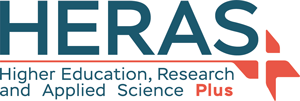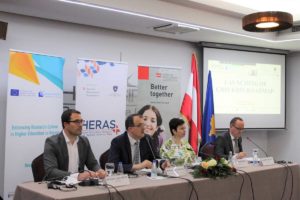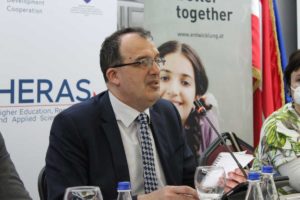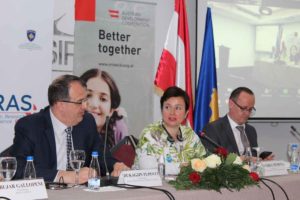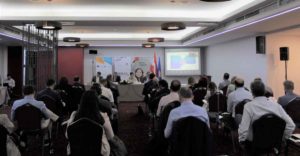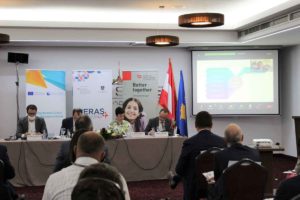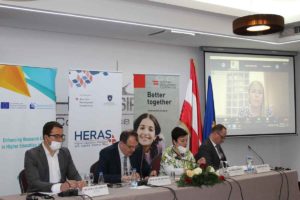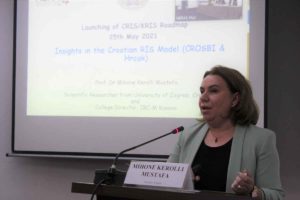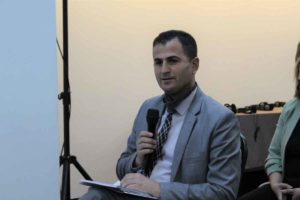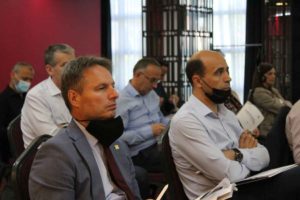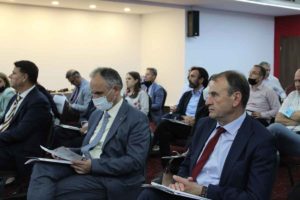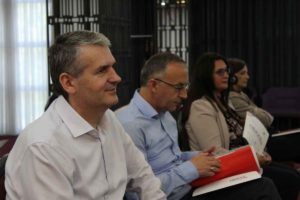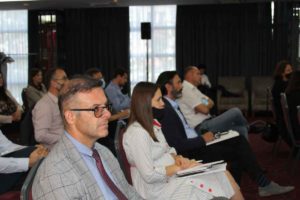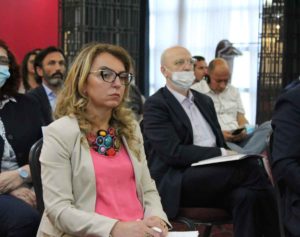HERAS Plus launched the Roadmap on Current Research Information System (CRIS/KRIS)
On 25 May 2021 took place launching of the first centralized system of systematic data collection of research activities, developed using Austrian and Croatian best practices and European Frameworks for data collection. This system will benefit many stakeholders such as Ministry of Education, Science, Technology and Innovation – MESTI (having the ownership), Universities, Research Entities. The Current Research Information System (CRIS/KRIS) roadmap was presented and good practices, models were discussed, as well as current challenges of research excellence faced by Universities and relevant stakeholders.
The event was officially addressed by Deputy Minister Mr. Dukagjin Pupovci, the Deputy Head of Cooperation of European Union (EU) in Kosovo, Ms. Hillen Francke, and Ms. Sandra Horina, Head of Austrian Development Agency (ADA), Local Office Prishtina as well as Mr. Aqim Emurli, HERAS Plus Team Leader.
Deputy Minister stated that improvement of research conditions is a priority of MESTI thus CRIS/KRIS is extremely important because will offer us data and information that could be used for various purposes and due to this reason, a Working Group was establish by MESTI to support the development and functionalization of CRIS/KRIS. CRIS/KRIS is related to other important processes such as Horizon Europe, development of the Smart Specialization Strategy and Drafting of the National Science Program by the National Science Council.
Related to the synergies of CRIS/KRIS with other priorities and processes, Ms. Francke of the EU Office in Kosovo, stressed that Scientific research is a very important component of EU activity in Kosovo and CRIS will play a crucial role in collection, monitoring and evaluation of research activities towards research excellence and the ability to absorb EU funds from programs such as Horizon Europe.
Ms. Sandra Horina, Head of ADA in Prishtina, stated that this important system for the activities and processes of scientific research comes as result of consistent contribution from the Austrian Donor, throughout the years, through previous projects (such as HERAS) in which human and infrastructure capacities for research were assessed and conclusions driven towards building up the reasoning for the development of CRIS/KRIS. This shows the consistency and suitability of project interventions from the Austrian donor.
In a concluding remark, Mr. Aqim Emurli, the team leader stressed that the roadmap is quite a milestone for HERAS Plus to have developed such a deliverable – the work has started in November 2020 which has included interviews, questionnaires, focus groups, several feedbacks from all sides. He further encouraged all stakeholders to work together and implement the options that are promulgated in it.
